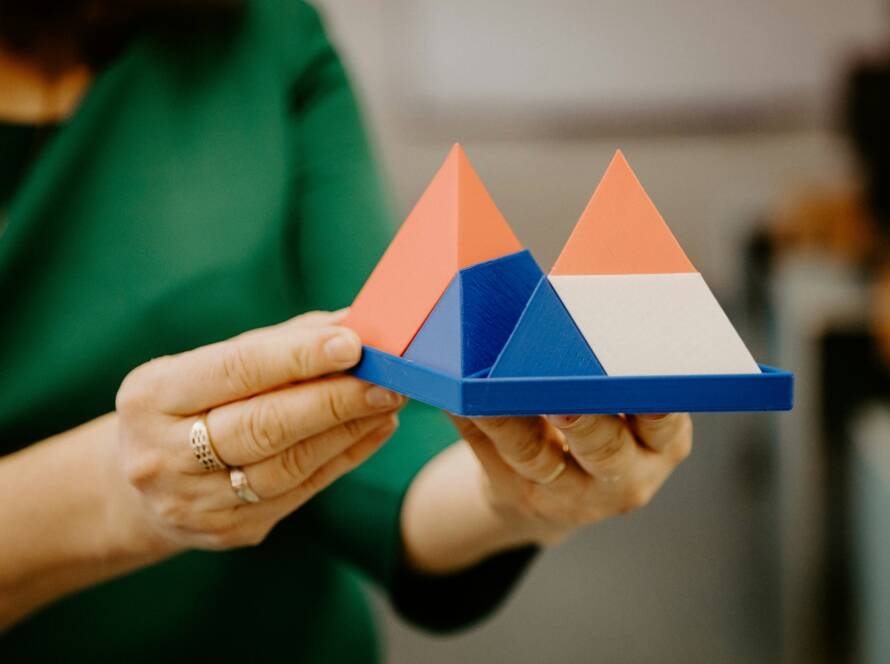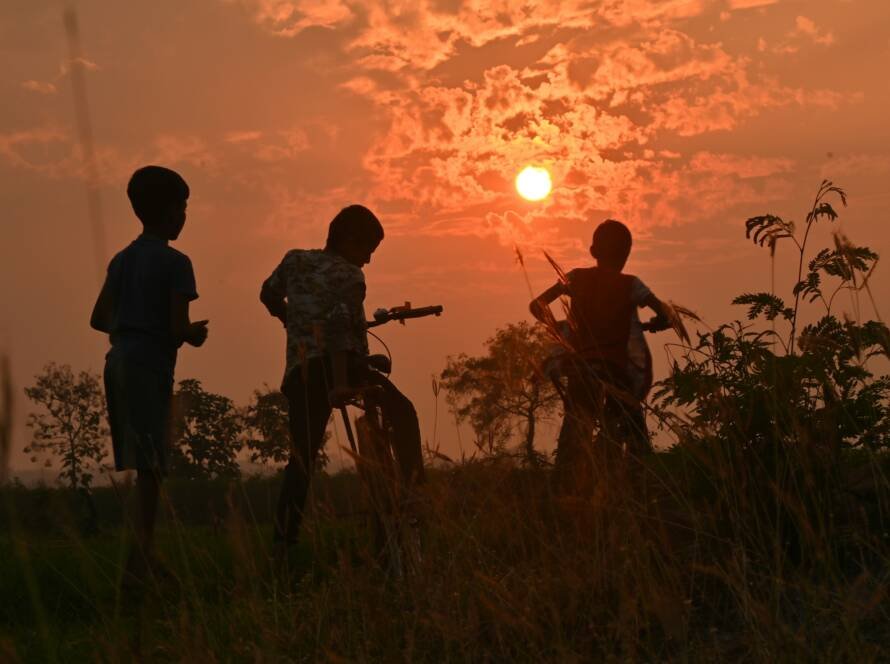Where the Sacred Circle of Reflection Meets the Timeless Rhythm of Practice
In the radiant expanse of Bharat’s civilizational consciousness, education was never a transaction of information—it was a transformation of being. The learner was not a passive recipient, but an active seeker, a sadhaka on the path of self-discovery. Long before the rise of modern pedagogies and structured psychological theories, the Gurukul system of ancient India had already grasped a profound truth: real learning does not occur in abstraction—it emerges from anubhav (experience), is refined by manan (reflection), and is anchored in acharan (action).
Centuries later, David Kolb, an American educational theorist, articulated a framework that mirrors this eternal wisdom. His Experiential Learning Cycle—comprising Concrete Experience, Reflective Observation, Abstract Conceptualization, and Active Experimentation—has become a cornerstone of progressive education in the West. But in truth, it is not a departure from ancient traditions; rather, it is a rediscovery of what the rishis of Bharat have long known and practiced.
The Sacred Science of Learning through Doing
Kolb’s model reminds us that knowledge is not a static collection of facts—it is a living, breathing process. We learn best not when we are told, but when we do. Not when we memorize, but when we engage. Not when we merely understand, but when we reflect and apply. This model affirms that learning is cyclical, personal, and deeply human—rooted in the interplay between experience and insight.
But let us journey back to the forests of Takshashila, the corridors of Nalanda, or the quiet shade of a gurukul under the sal trees. There, a young shishya learned by observing the guru, practicing rituals, tending to daily chores, reciting verses, meditating on their meaning, and living in the very values they studied. Knowledge was not imparted; it was invited into one’s being. Each act—whether learning the Vedas, archery, or Ayurveda—was an embodied experience, guided by reflection, repetition, and internalization.
What Kolb theorized in academic terminology, the Gurukul system lived as a way of life.


Manan: The Forgotten Power of Reflection
If action is the body of learning, reflection is its soul. Today’s classrooms, caught in the chase for syllabus completion and grade optimization, rarely leave space for manan—deep, contemplative thought. But ancient pedagogy placed reflection at the center of the learning journey.
After a day’s lesson, students in the Gurukul would sit in silence—beneath trees, by rivers, or in the glow of firelight—revisiting what was heard, seeking to connect outer learning with inner growth. This is not unlike Kolb’s second stage: Reflective Observation, where learners are called to pause, introspect, and examine their experiences from multiple dimensions.
If we are to restore depth to modern education, we must bring back the sacred pause—the reflective breath between experience and action.
NEP 2020: The Return to an Eternal Vision
India’s National Education Policy (NEP) 2020 marks a civilizational turning point. It calls for an education that is experiential, integrated, holistic, and deeply rooted in values — echoing both Kolb’s framework and the Gurukul ethos.
The policy encourages interdisciplinary learning, project-based pedagogy, arts integration, vocational exposure, and bagless days — ideas that dissolve the boundary between learning and living. It moves away from rote instruction to cultivate critical thinking, creativity, and character.
But beneath these reforms lies a quiet revolution — the return to Bharat’s original vision of education: not as industrial output, but as inner unfolding. Not as utility alone, but as unity with the self, with society, and with the sacred.
From Student to Seeker: A New Paradigm of Learning
Modern learners are not empty vessels to be filled. They are evolving beings seeking connection, meaning, and purpose. What they need is not more information, but more insight. Not more testing, but more transformation.
By synthesizing Kolb’s structured model with India’s embodied wisdom, we can create a learning experience that is:
-
Grounded in real-world engagement
-
Deepened by self-reflection
-
Elevated through critical thinking
-
And completed by purposeful application
Such a pedagogy does more than prepare students for careers. It prepares them for life — for leadership, for ethical action, and for conscious citizenship.
The Call of the Times: Reimagining the Sacred Duty of Education
Today’s learners face an overwhelming storm of distractions, pressures, and disconnections. In such a climate, the role of education must transcend employability. It must guide the young toward purpose, presence, and participation—toward becoming samanvit jeevan (integrated beings), rooted in their culture yet prepared for a global world.
To do so, we must bridge the ancient and the modern—not as opposites, but as complementary forces. The rigor of Kolb’s cycle gives us the structure. The soul of the Gurukul gives us the spirit. Together, they can awaken an education that is experiential, ethical, and elevating.
Let our classrooms become karmabhoomis, our educators become gurus in the truest sense, and our learners become sadhakas—immersed in the dance of doing, reflecting, understanding, and becoming.
A New Dawn Rooted in Eternal Light
The fusion of Kolb’s experiential learning and Gurukul wisdom is not an academic exercise—it is a civilizational imperative. It reminds us that the most powerful learning does not merely inform; it transforms. It does not only fill minds; it expands consciousness.
Let us awaken once more to the purpose of education—not merely to build careers, but to build character; not only to train intellects, but to ignite insight; not simply to teach, but to touch lives.
In the meeting of Kolb and the Gurukul lies the possibility of an education that is as modern as tomorrow, and as eternal as the rishis’ chants that still echo across time.
Let us walk this path—not as followers of trends, but as torchbearers of a timeless legacy that the world is only now beginning to remember.
To learn is to live. To reflect is to rise. To act with awareness is to awaken. May our learning systems inspire nothing less than the blossoming of the human spirit.
May our learning systems once again become sacred spaces—where knowledge is revered, wisdom is nurtured, and the soul of the learner finds its light.



